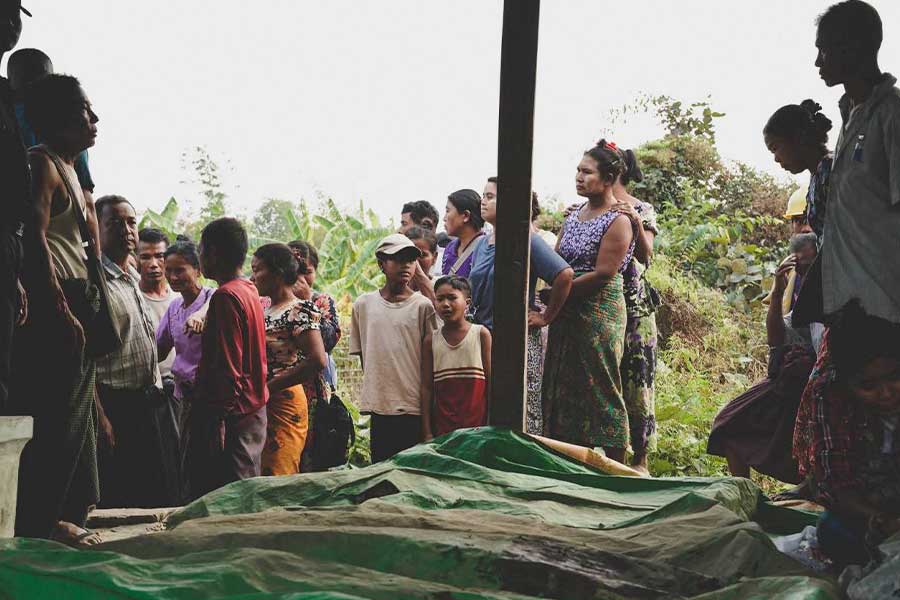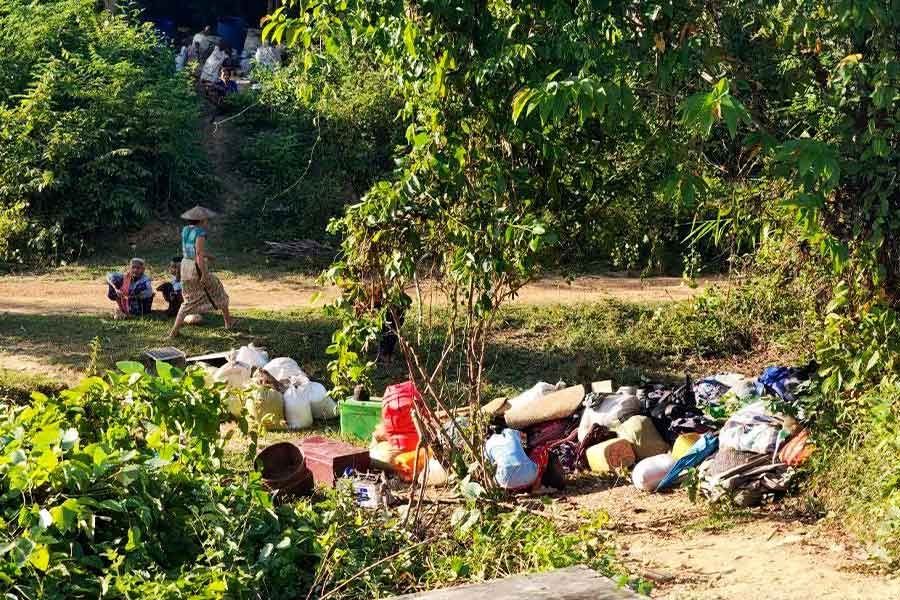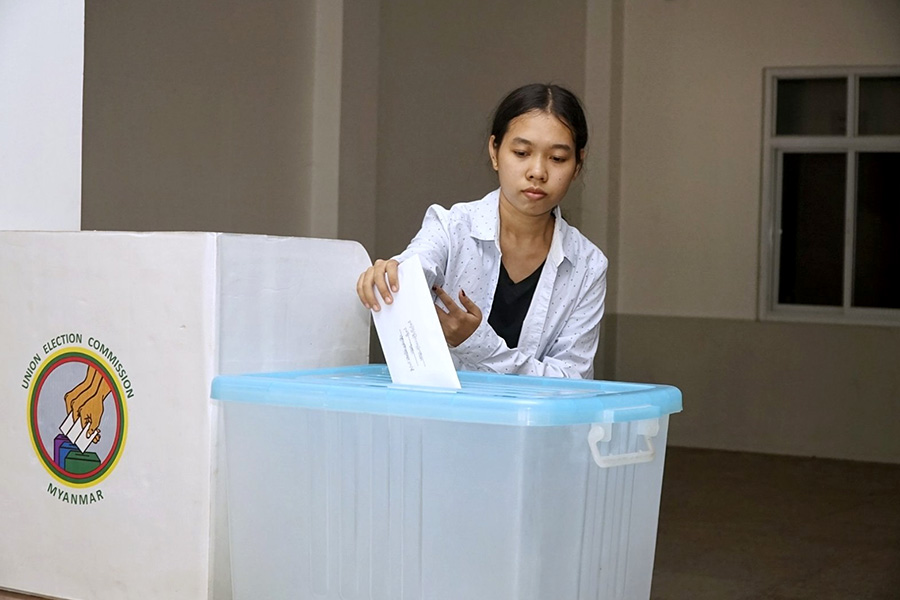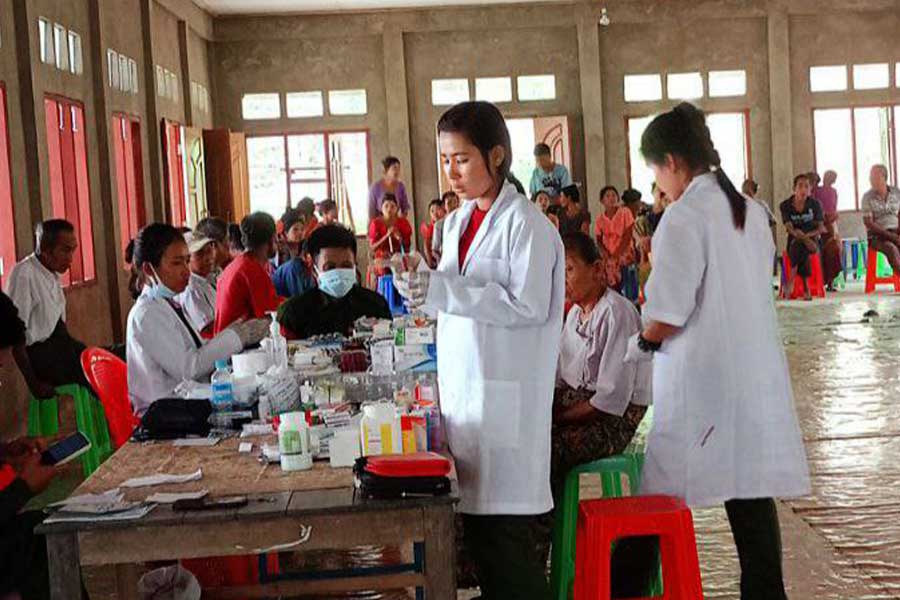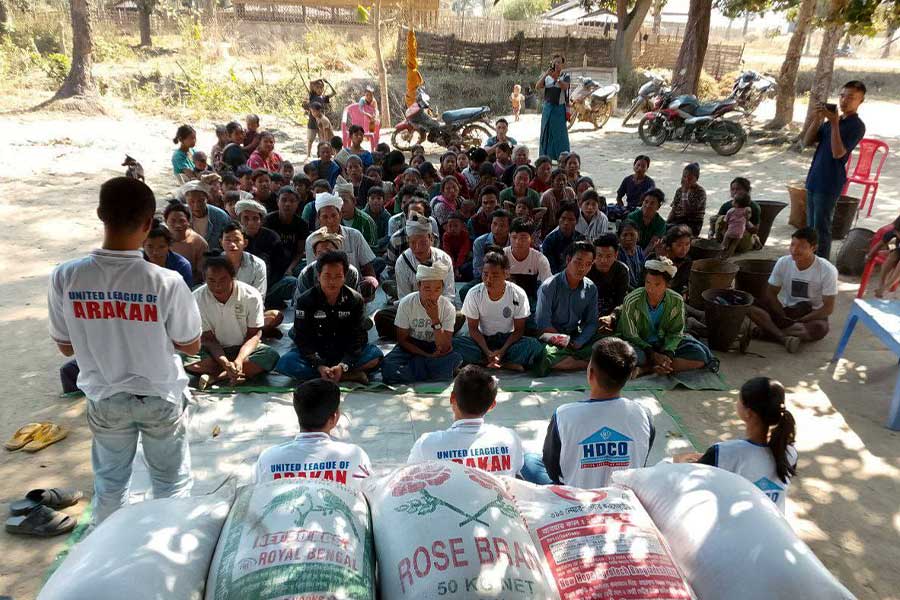- 15 mass casualty incidents from regime airstrikes reported in Arakan State since 2023
- Kyaukphyu IDPs forced to flee again amid junta airstrikes and artillery attacks
- New Diplomatic Movements Between Bangladesh’s New Government and the Arakan Public Administration
- Junta claims over 24 million ballots cast in 2025 poll, cites strong youth turnout
- ULA expands HIV prevention, healthcare services for sex workers in AA-held areas
Over 27,000 girls in Arakan State to get HPV vaccination
Dr. Htar Htar Linn, director of the Public Health Department’s Expanded Programme on Immunisation, said instability in Arakan State is an issue, but that once the situation has returned to normal, the vaccination programme will commence.
30 Oct 2020
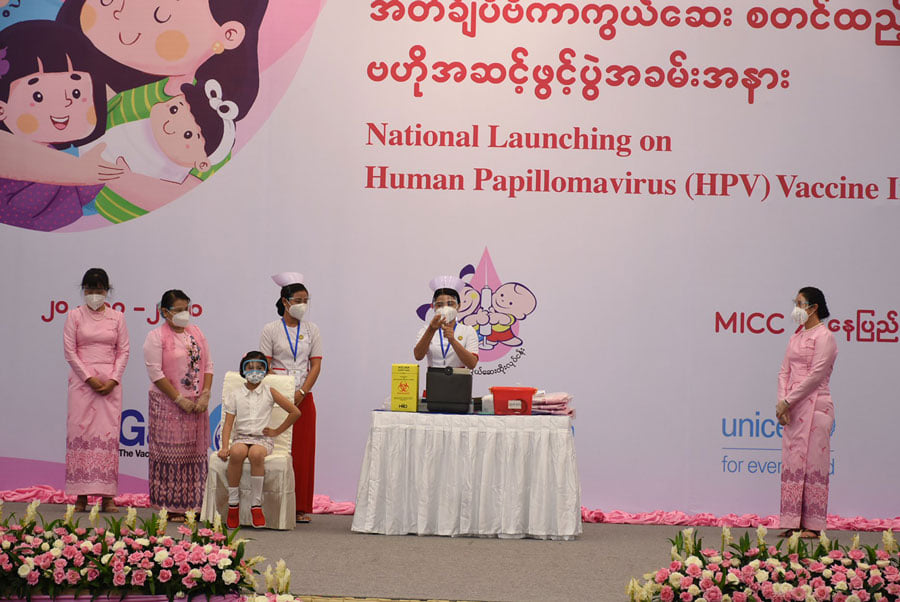
Thet Paing | DMG
30 October 2020, Sittwe
The Ministry of Health and Sports plans to vaccinate more than 27,000 girls in Arakan State to protect them against human papillomavirus (HPV).
The effort is part of a nationwide HPV vaccination programme, targeting more than 464,000 9- and 10-year-old girls born between September 1, 2010, and August 31, 2011.
Dr. Htar Htar Linn, director of the Public Health Department’s Expanded Programme on Immunisation, said instability in Arakan State is an issue, but that once the situation has returned to normal, the vaccination programme will commence.
“Birth certificate, school enrollment card or household registration card are to be brought along when going to the department concerned. And then, obtain an invitation card that will have an appointment date for vaccination. The main purpose is not to create a large crowd of people,” she said.
Dr. Htar Htar Linn said all girls 9 and 10 years of age will be vaccinated irrespective of race or religion.
HPV is a leading cause of cervical cancer. Four out of every 100,000 women suffer from cervical cancer in Myanmar, according to figures from the Public Health Department.
Dr. Soe Oo, director general of the Public Health Department, said the vaccination programme had been scheduled to start in August but was delayed until October due to the COVID-19 pandemic.
He said vaccinations began on October 20 in Arakan State townships not currently under stay-at-home orders. The vaccination programme will be conducted in the locked down townships once the stay-at-home orders are lifted, he added.
“We planned to conduct vaccinations initially at schools because the girls are of school-going age. However, as it is COVID time and schools have been closed, we have to do it after collaboration with state and regional governments, and other responsible personnel,” Dr. Soe Oo explained.
He said the Myanmar government would shoulder 20% of the cost of the vaccine and the remaining 80% would be covered by the Global Alliance for Vaccine and Immunisation (GAVI).
Among the ASEAN member states, Myanmar is the sixth country after Singapore, Malaysia, Thailand, Brunei and Laos to carry out a nationwide HPV vaccine programme, according to the Expanded Programme on Immunisation under the Ministry of Health and Sports.
Myanmar has the second-highest incidence of cervical cancer in Southeast Asia, amounting to 21 cases per 100,000 women, according to GAVI.
Though cervical cancer is a curable disease, the mortality rate in Myanmar is considered high due to shortcomings in early diagnosis and limitations in treatment, Dr. Htar Htar Linn said.
In 2018, there were 6,472 women diagnosed with cervical cancer in Myanmar, of whom 3,856 died.




